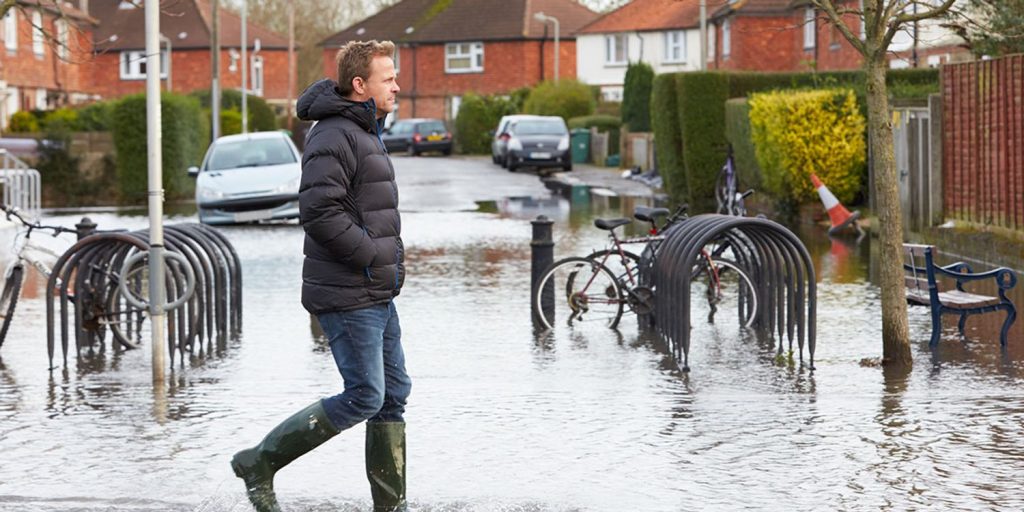
In an era where extreme weather events are becoming more frequent and severe due to climate change, businesses face an increased risk of flooding. This can result in significant damages that impact not only physical assets but also the financial stability of the company. Flood insurance emerges as a crucial safeguard, designed to provide businesses with a financial backup in the event of such disasters. Understanding what does flood insurance cover and why it is needed is fundamental for any company looking to mitigate risks associated with flooding.
Understanding Flood Insurance
Flood insurance is a specialized form of insurance that protects property owners against losses due to water damage specifically caused by flooding. Given that standard commercial property insurance policies exclude floods, this coverage is essential for businesses in both high-risk and moderate-to-low-risk areas. The nature of flooding—unpredictable and with the potential to cause catastrophic damage—makes this type of insurance a key component of risk management strategies for businesses.
What Does Flood Insurance Cover?
Structural Damage
Flood insurance typically covers damage to the building itself. This includes the foundation, electrical and plumbing systems, central air and heating equipment, water heaters, and permanently installed carpeting and cabinetry. By covering the structural integrity of a business facility, flood insurance helps companies quickly rebound from a flood’s devastation.
Contents Coverage
Beyond the structure, flood insurance also extends to cover a business’s contents and inventory. This can include furniture, machinery, raw materials, computers, and other electronic equipment. Coverage for contents is particularly important for retail businesses, manufacturers, and service providers whose operations rely heavily on physical assets.
Non-Structural Items
Some policies may extend to cover the cost of protective measures taken before a flood, such as sandbags, to prevent water damage. Additionally, debris removal is typically included to help businesses return to operational status quicker after a flood event.
The specifics of what a flood insurance policy covers can vary significantly from one provider to another. Hence, it is crucial for businesses to thoroughly understand the terms and exclusions of their policies to ensure comprehensive protection.
Why Businesses Need Flood Insurance
Financial Protection
The primary role of flood insurance is to provide financial recourse in the event of flooding. Floods can cause extensive damage that many businesses cannot afford to repair out-of-pocket. This insurance helps businesses manage the cost of restoration and repairs, ensuring that these expenses do not cripple their financial health.
Regulatory Compliance
In many areas prone to flooding, local or federal regulations may require businesses to have flood insurance, particularly if their properties are financed with federally backed-mortgages. Compliance with these regulations is not only a legal obligation but also a critical aspect of operational integrity and corporate responsibility.
Operational Continuity
Business continuity is paramount, and unexpected interruptions can be costly. Flood insurance aids in reducing downtime by facilitating swift post-disaster recovery, which is essential to maintaining client trust and business stability. Companies that can recover and resume operations quickly are more likely to retain their clientele and sustain less long-term financial impact.
Risk Management
Having flood insurance is also a key part of a comprehensive risk management strategy. It allows businesses to address vulnerabilities proactively and provides peace of mind knowing that they are prepared for potential natural disasters. Adequate coverage supports stability and confidence among business owners, shareholders, and customers alike.
Conclusion
Flood insurance stands as a pivotal defense against the direct and indirect costs associated with flood damage. While the intricacies of coverage details can vary by policy and provider, the protection it offers makes it indispensable for businesses located in flood-prone areas—and even for those who believe they are at a lower risk. Investing in flood insurance is not merely about compliance or financial protection; it is a strategic decision that supports overall business resilience.
Understanding what flood insurance covers helps businesses make informed decisions about their insurance needs. With the right coverage in place, companies can face the challenge of flooding with certainty and strategic advantage. This ensures not only their recovery from any single event but also the ongoing stability and growth of the business in the face of environmental uncertainties.